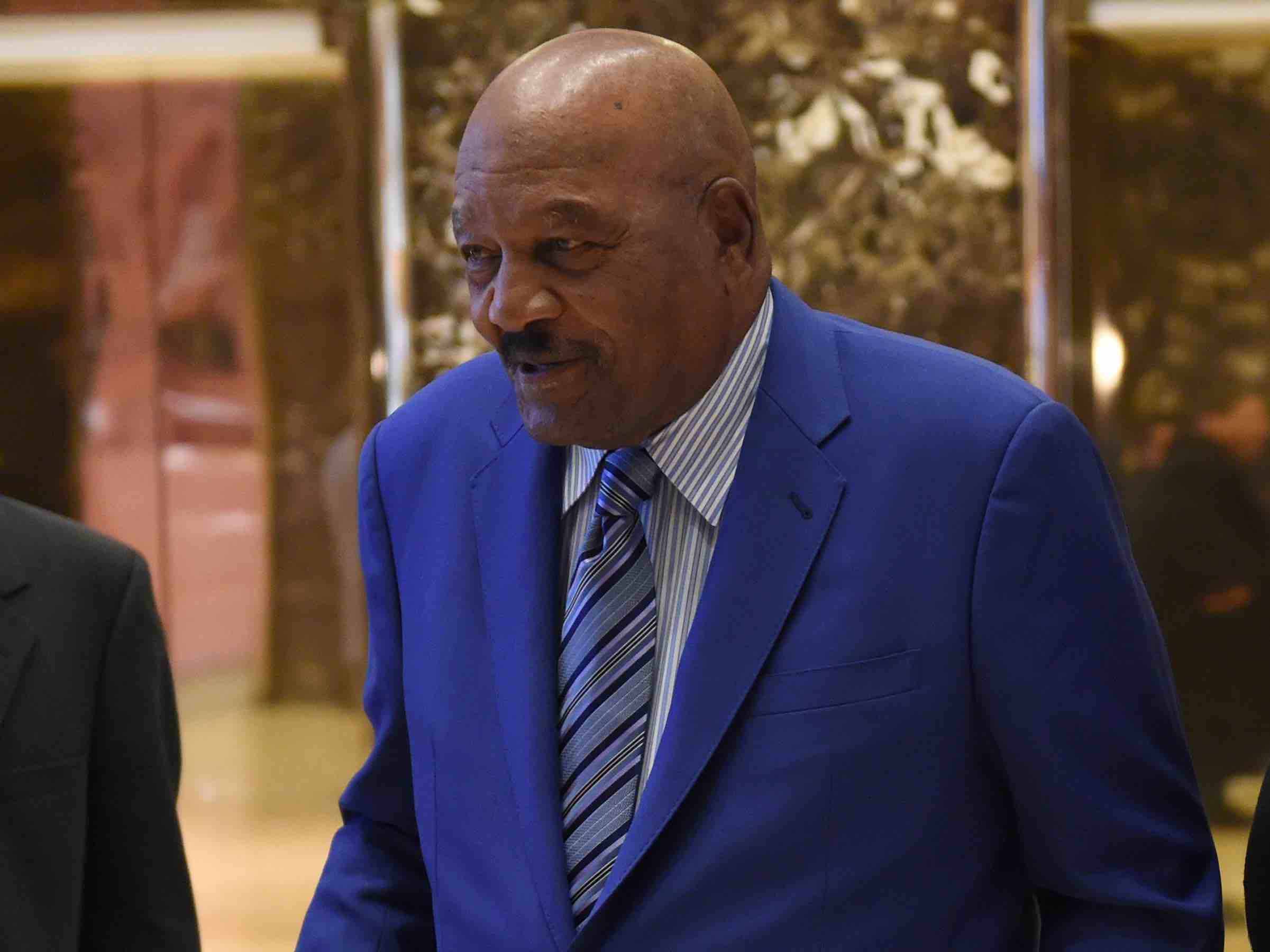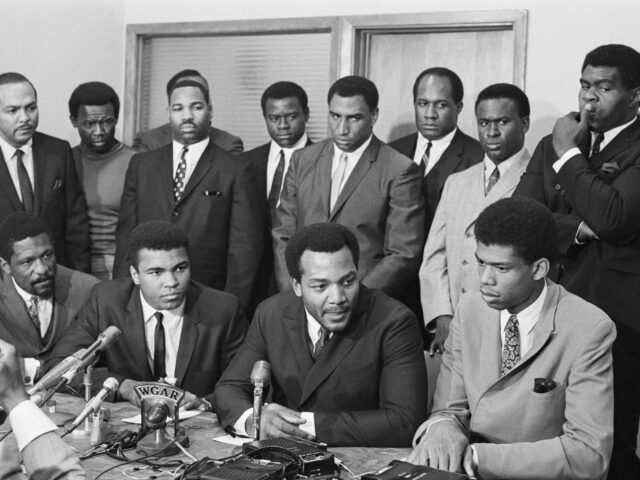Football legend Jim Brown, who once held the NFL career rushing record and went on to become a powerful voice for civil rights, died Thursday evening at the age of 87 at his home in Los Angeles from natural causes.
Brown had not played football for more than half a century when he returned to public life in the aftermath of the 2016 presidential campaign. On December 13 of that year, Brown was among black leaders who met with Trump to speak with him. He told reporters afterward in the Trump Tower lobby: “The graciousness, the intelligence, the reception we got was fantastic. He’s amenable to listening to people who didn’t vote for him.”

Football legend Jim Brown arrives at Trump Tower for meetings with President-elect Donald Trump on December 13, 2016 in New York. / AFP / TIMOTHY A. CLARY (Photo credit should read TIMOTHY A. CLARY/AFP via Getty Images)
By 2020, Brown endorsed Trump for reelection, despite facing criticism in the black community, because “there are certain good things that are coming out of this presidency because we’ve never seen anything like it.”
Brown was willing to look beyond partisan loyalties and to judge President Trump based on his track record in the black community — the lowest unemployment to date among African-Americans; the first pay increases in the black community in decades; the criminal justice reforms Trump signed after working with black leaders to craft legislation; and the fact that Trump had elevated a new generation of black conservatives in public life.
Though his stance was controversial, Brown knew he had paid his dues. After retiring from the NFL’s Cleveland Browns at the age of 30, Brown founded the Negro Industrial Economic Union and hosted the 1967 Cleveland Summit, where black athletes came together to support Muhammad Ali after he objected to the Vietnam War.

(Original Caption) Nation’s top Negro athletes gathered for a meeting at the Negro Industrial and Economic Union to hear Cassius Clay’s view for rejecting Army induction. News conference shows (front row) Bill Russell, Boston Celtics; Cassius Clay; Jim Brown and Lew Alcindor. Back row (left to right): Carl Stokes, Democratic State Rep.; Walter Beach, Cleveland Browns; Bobby Mitchell, Washington Redskins; Sid Williams, Cleveland Browns; Curtis McClinton, Kansas City Chiefs; Willie Davis, Green Bay Packers; Jim Shorter, former Brown and John Wooten, Cleveland Browns. (Getty)
Brown also created the Amer-I-Can Foundation, which still works to reduce gang violence in Los Angeles.
Today it is common to hear of professional athletes joining political causes. When Brown did so, in the 1960s, it was unusual — particularly for black athletes, who faced deep social and economic consequences if they spoke out. Though he was not always the most exemplary figure — he was arrested several times on domestic violence charges — he created the model for athlete-turned-advocate that others have followed in the decades since.
Unlike many today, Jim Brown did not go for cheap causes or for politically correct stances. He made up his own mind. When it came to issues affecting the black community, he did not project every grievance onto a “white supremacist” system, but took on challenges within the community itself, as well as external forces. He demanded an equal place in the United States of America — not that the country he loved should be overturned.
On the football field, his legacy remains staggering. As the Associated Press noted, “One of the greatest players in football history and one of the game’s first superstars, Brown was chosen the NFL’s Most Valuable Player in 1965 and shattered the league’s record books in a short career spanning 1957-65.” Brown was “[a]n unstoppable runner with power, speed and endurance.” His rushing record fell to Walter Payton a full two decades later.
Yet it was as a citizen that Brown became one of America’s most influential cultural leaders. He was willing to look beyond the hysteria of the mainstream media, and to step outside of the increasingly left-wing consensus in the professional sporting world.
He made a choice, and he explained why he had done so. He did not expect to convince everyone to agree with him, but he would not be stopped. That is the Jim Brown we will remember.
Joel B. Pollak is Senior Editor-at-Large at Breitbart News and the host of Breitbart News Sunday on Sirius XM Patriot on Sunday evenings from 7 p.m. to 10 p.m. ET (4 p.m. to 7 p.m. PT). He is the author of the new biography, Rhoda: ‘Comrade Kadalie, You Are Out of Order’. He is also the author of the recent e-book, Neither Free nor Fair: The 2020 U.S. Presidential Election. He is a winner of the 2018 Robert Novak Journalism Alumni Fellowship. Follow him on Twitter at @joelpollak.